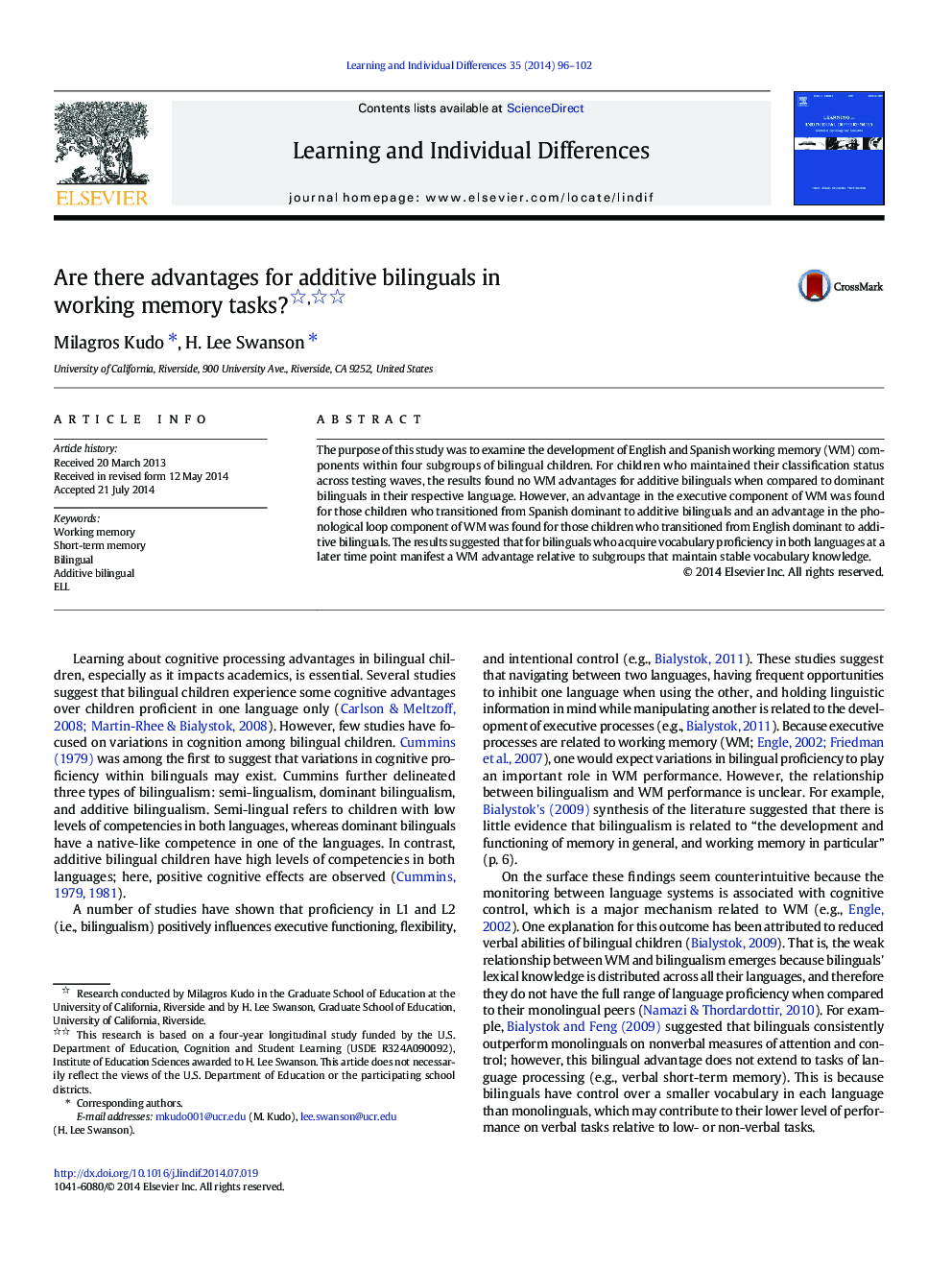| Article ID | Journal | Published Year | Pages | File Type |
|---|---|---|---|---|
| 6845064 | Learning and Individual Differences | 2014 | 7 Pages |
Abstract
The purpose of this study was to examine the development of English and Spanish working memory (WM) components within four subgroups of bilingual children. For children who maintained their classification status across testing waves, the results found no WM advantages for additive bilinguals when compared to dominant bilinguals in their respective language. However, an advantage in the executive component of WM was found for those children who transitioned from Spanish dominant to additive bilinguals and an advantage in the phonological loop component of WM was found for those children who transitioned from English dominant to additive bilinguals. The results suggested that for bilinguals who acquire vocabulary proficiency in both languages at a later time point manifest a WM advantage relative to subgroups that maintain stable vocabulary knowledge.
Related Topics
Social Sciences and Humanities
Psychology
Developmental and Educational Psychology
Authors
Milagros Kudo, H. Lee Swanson,
